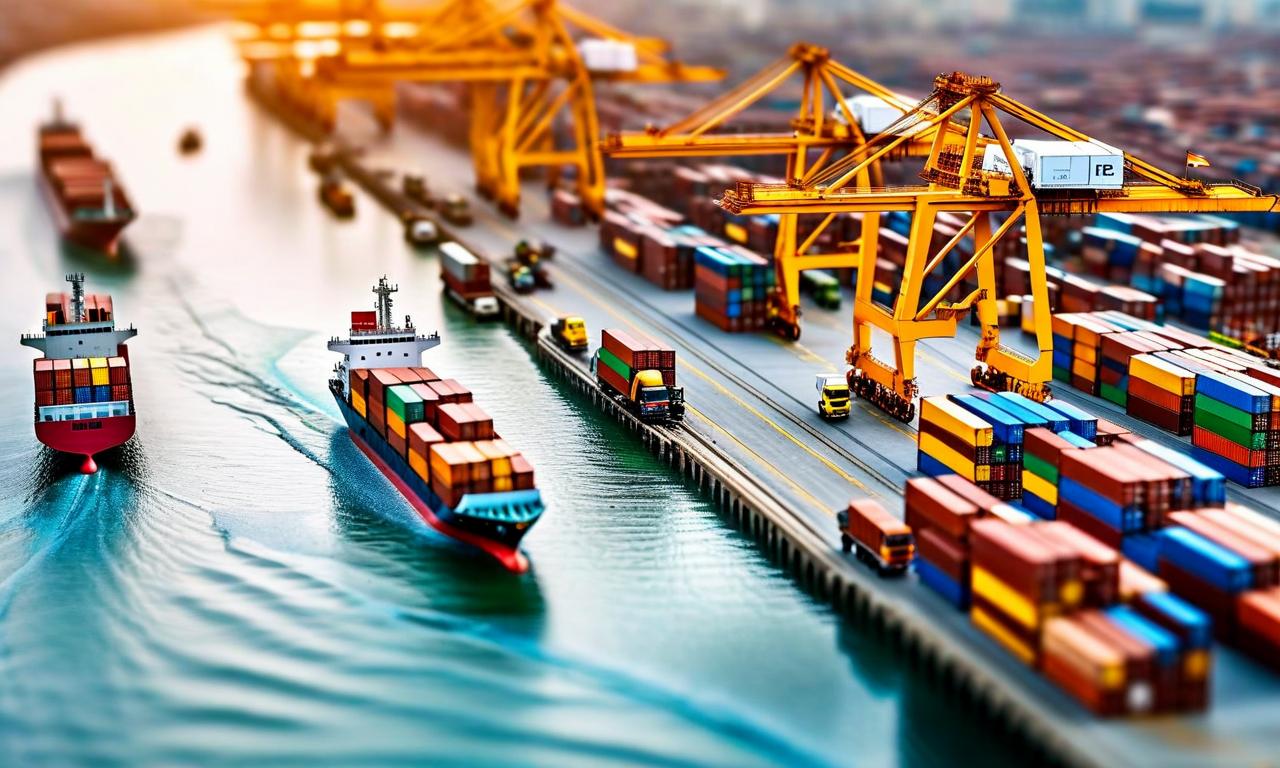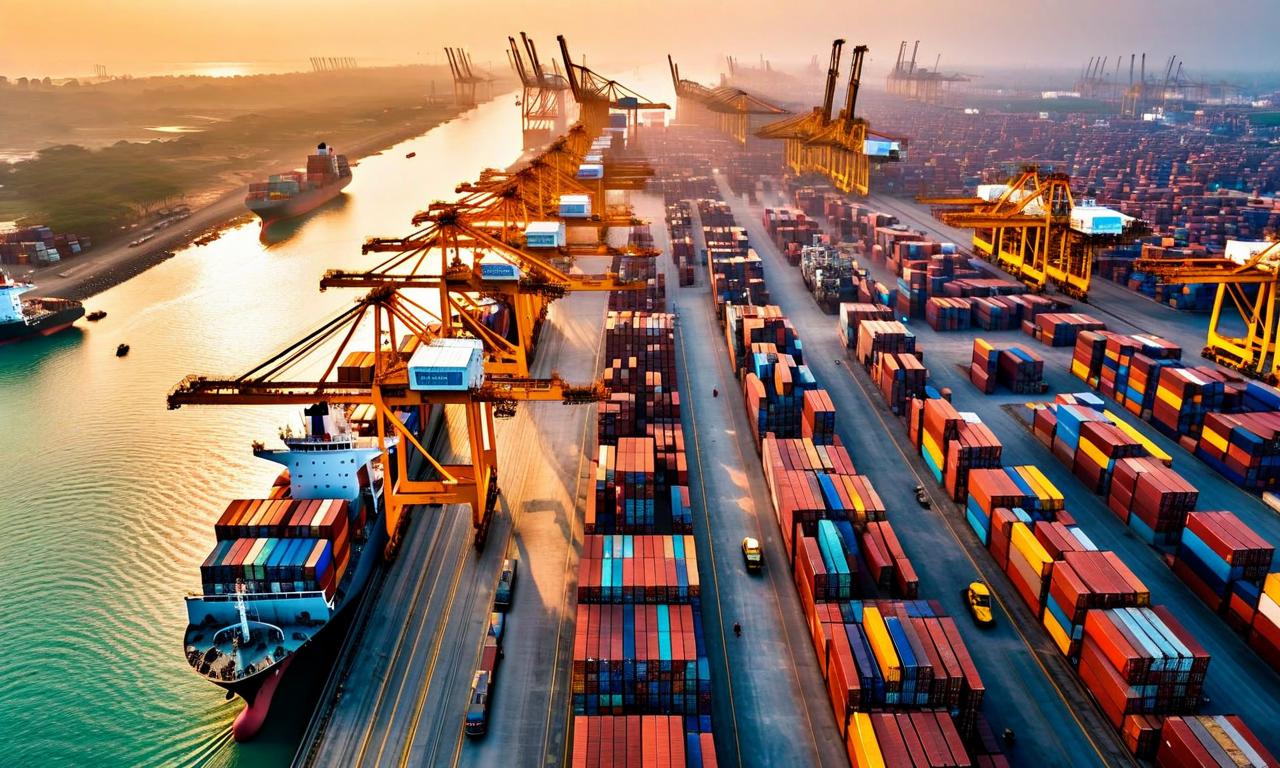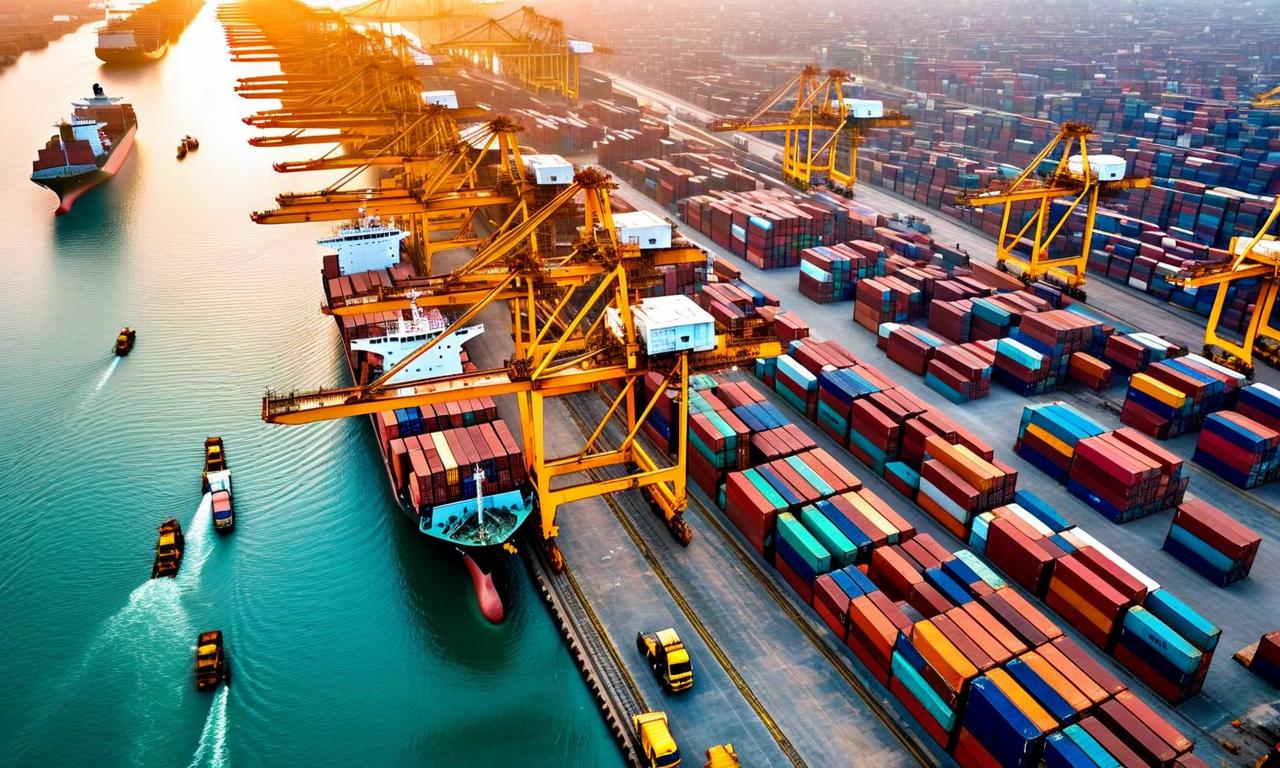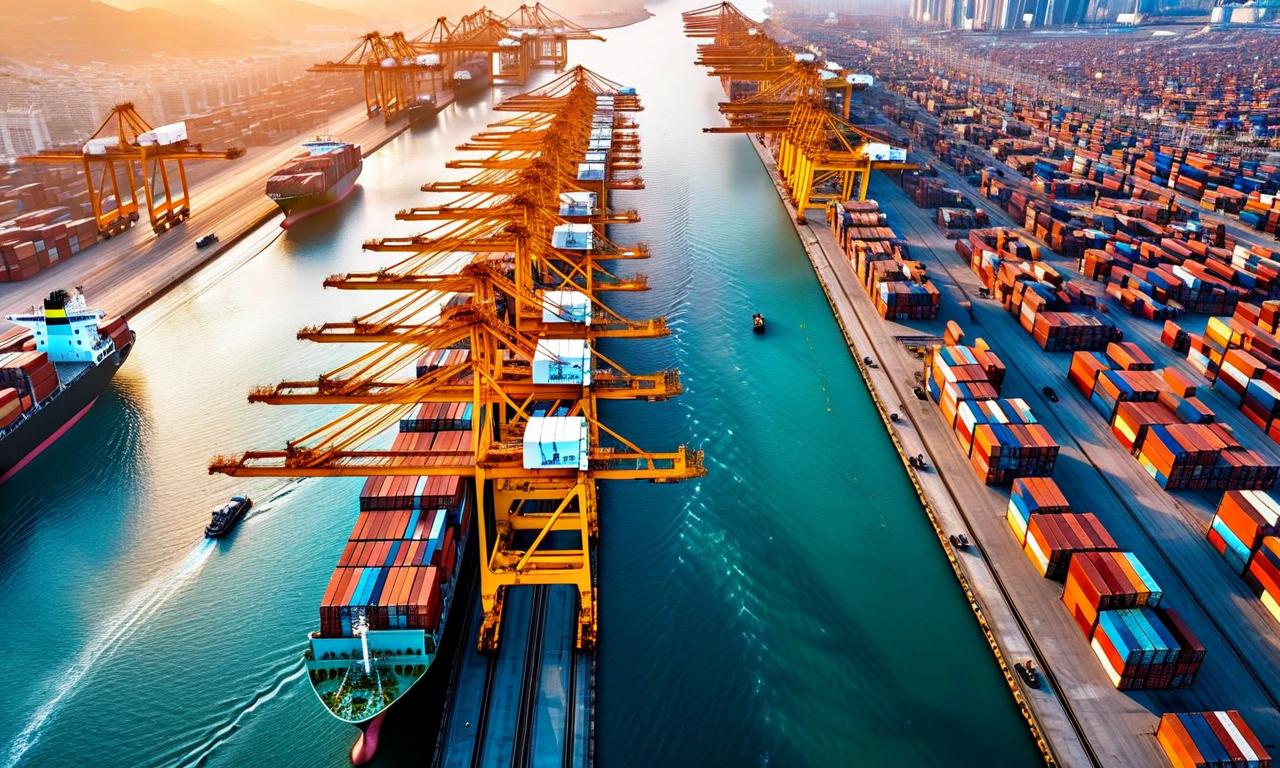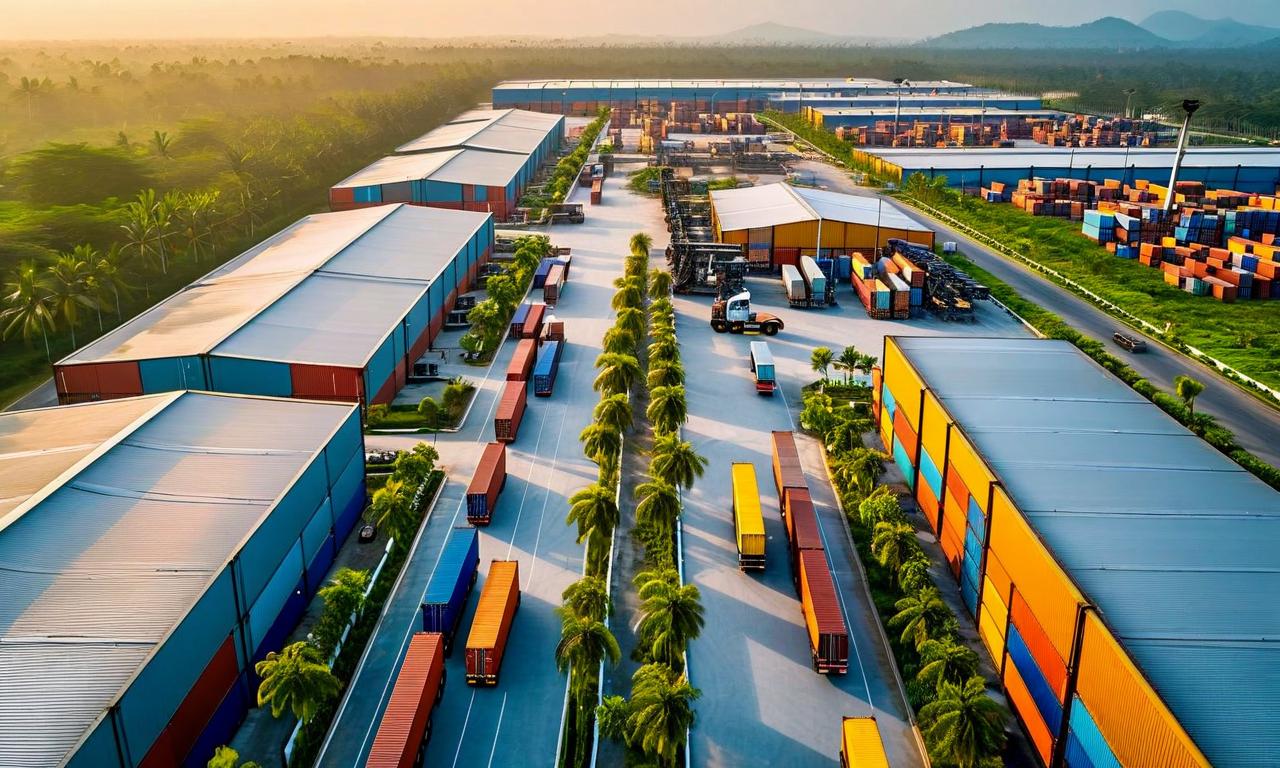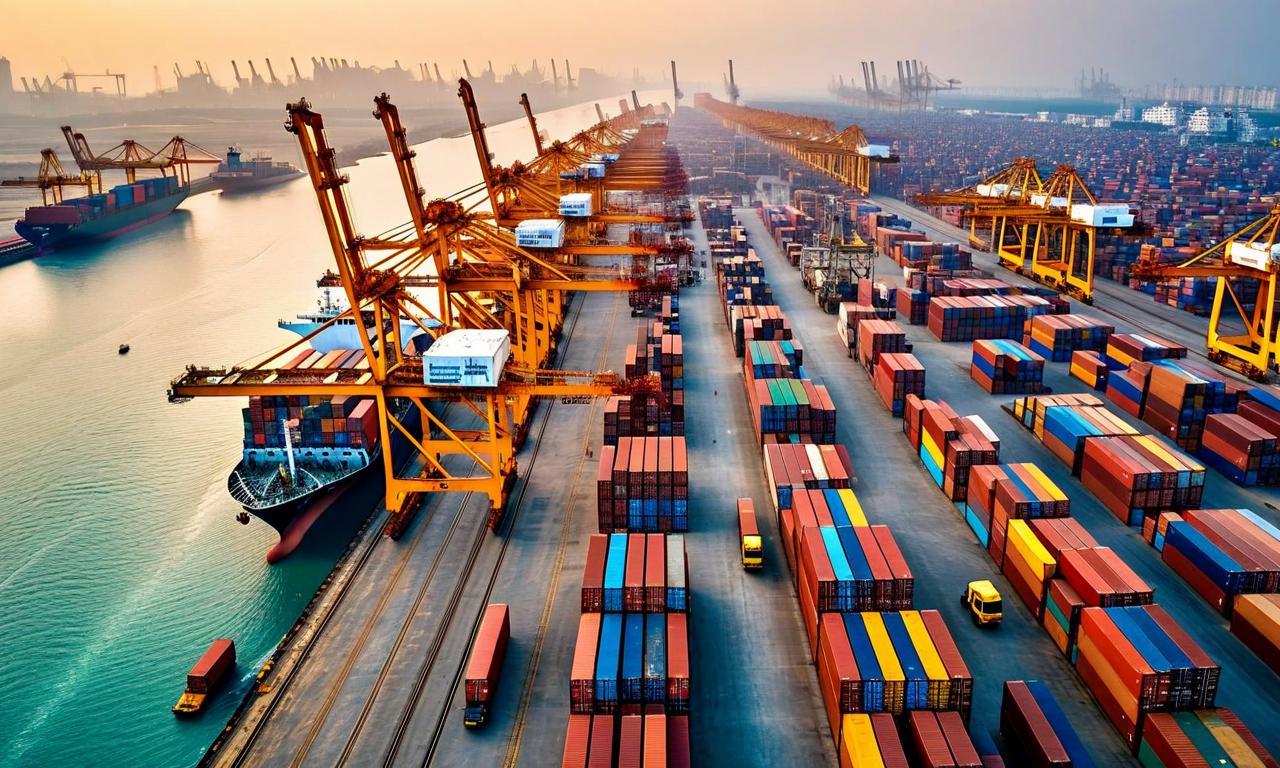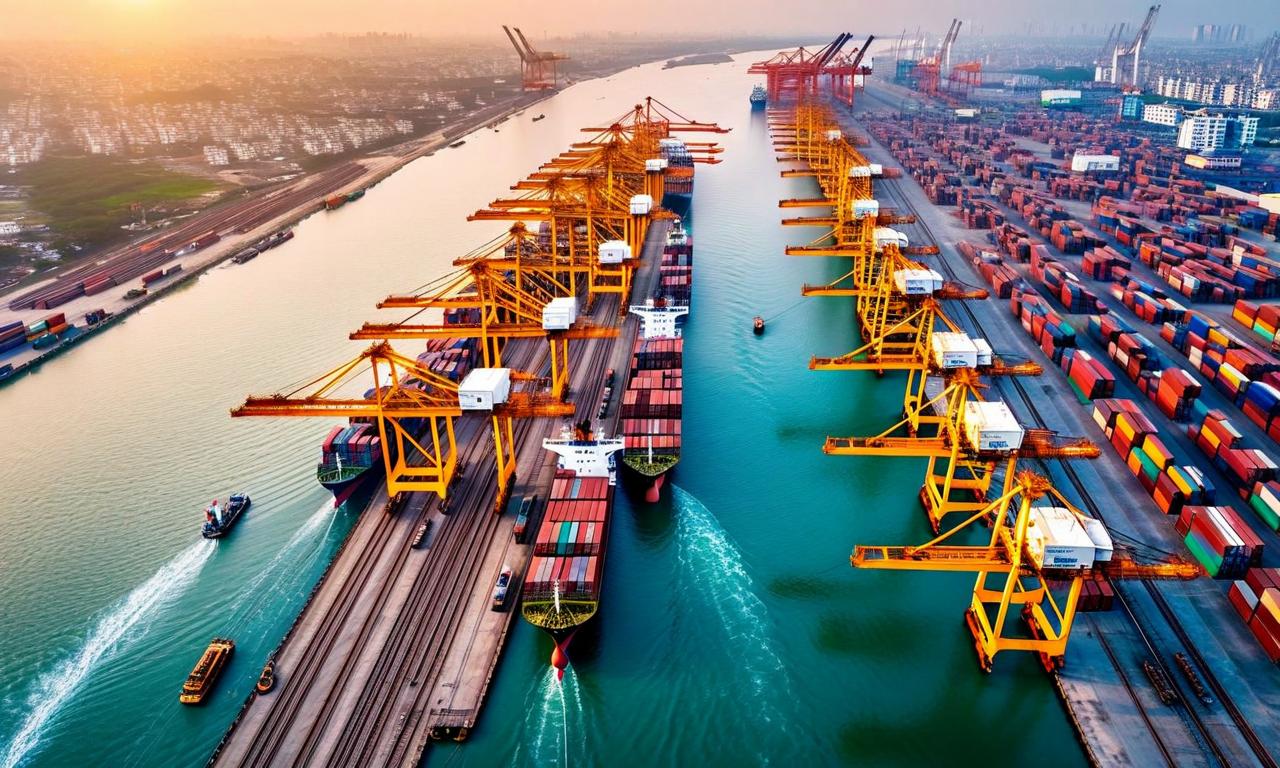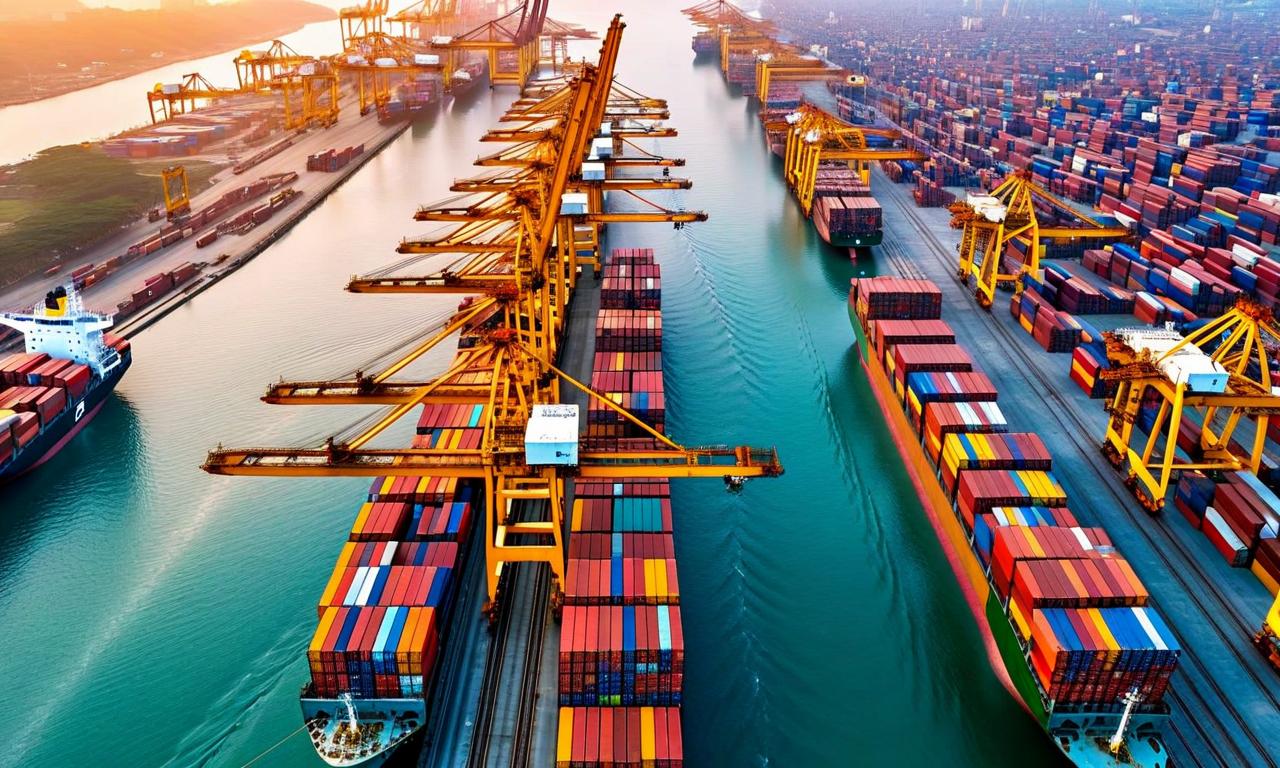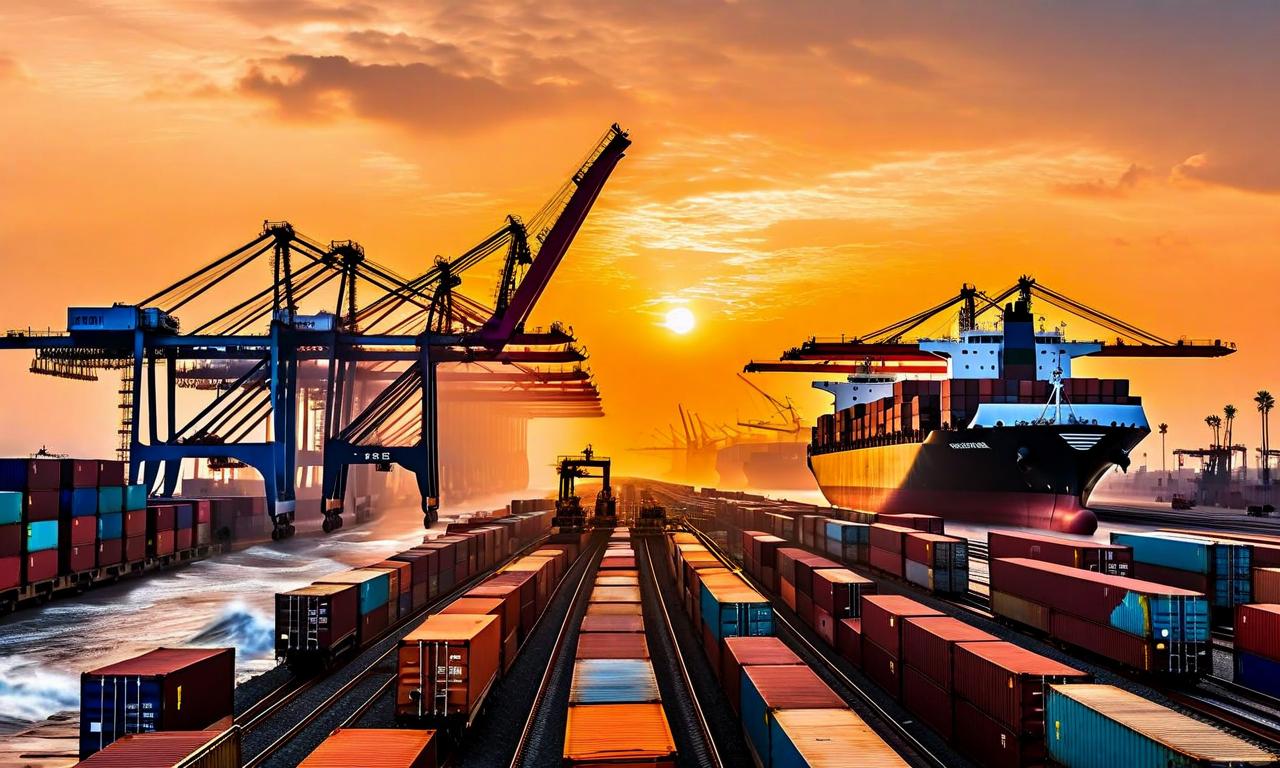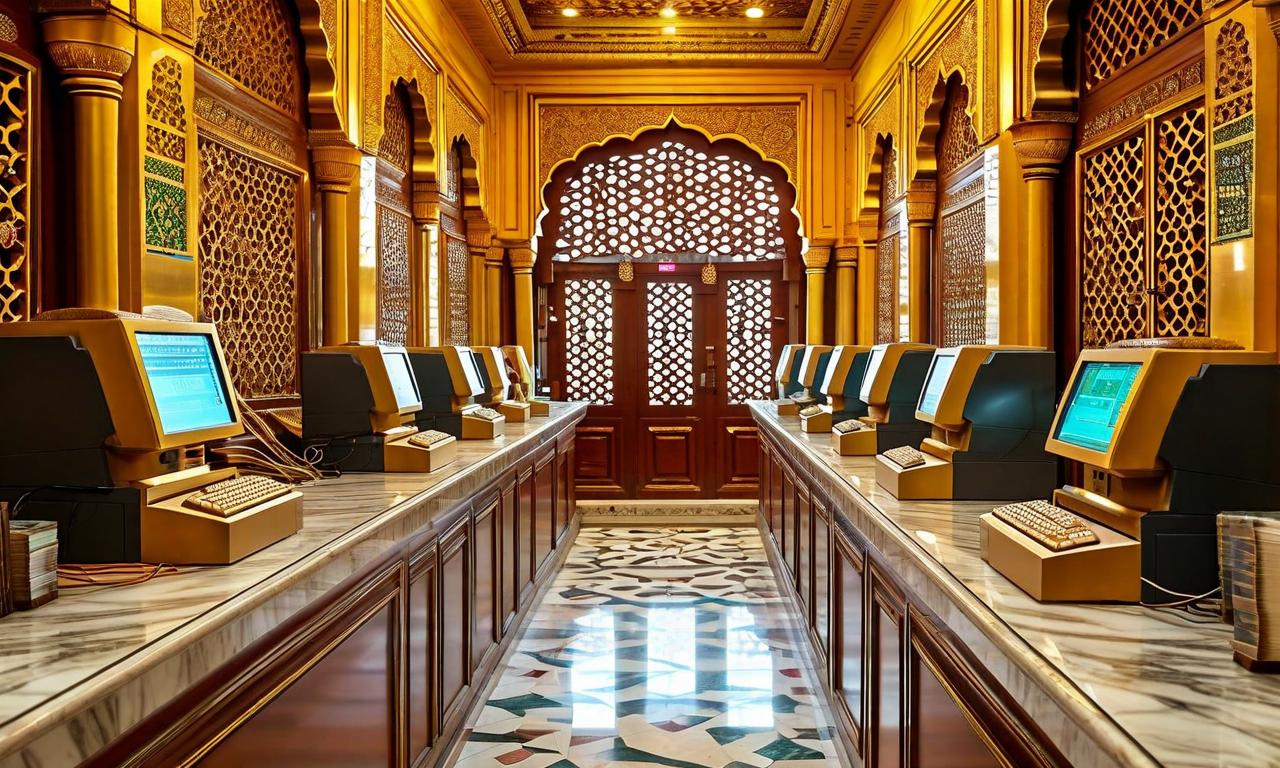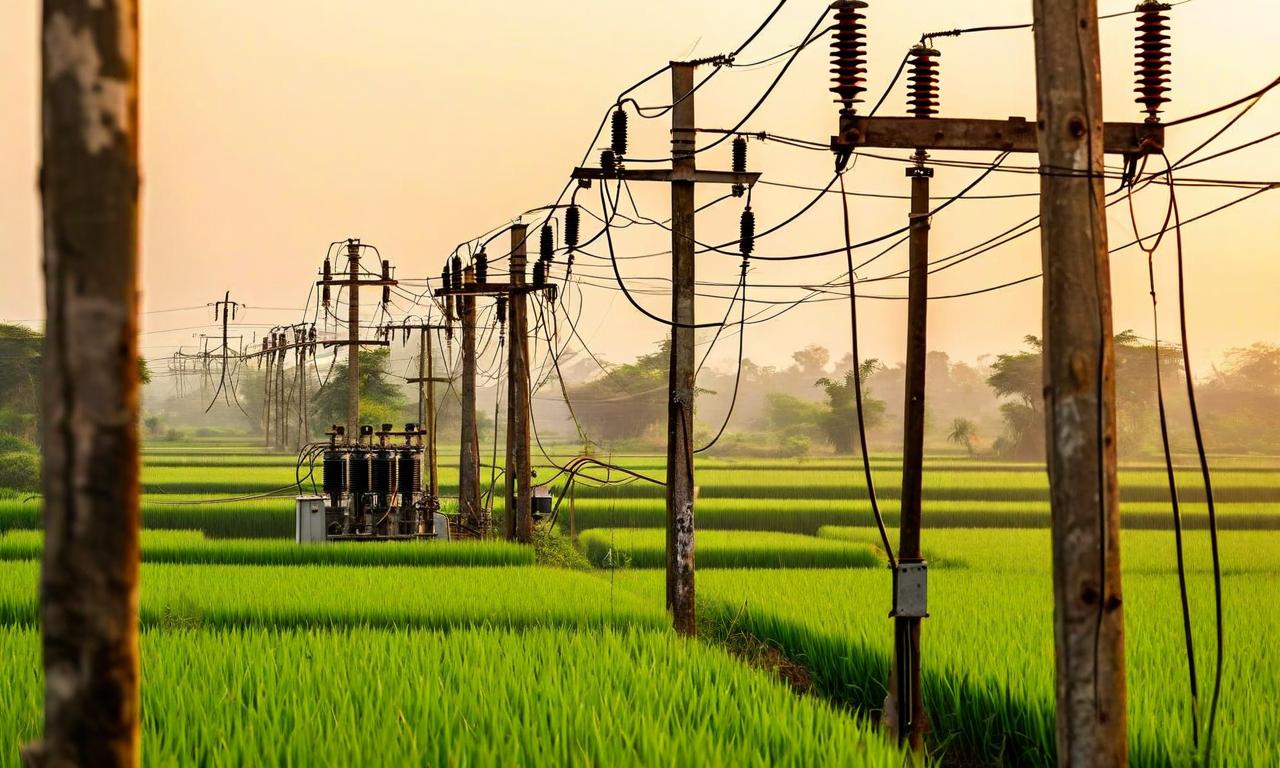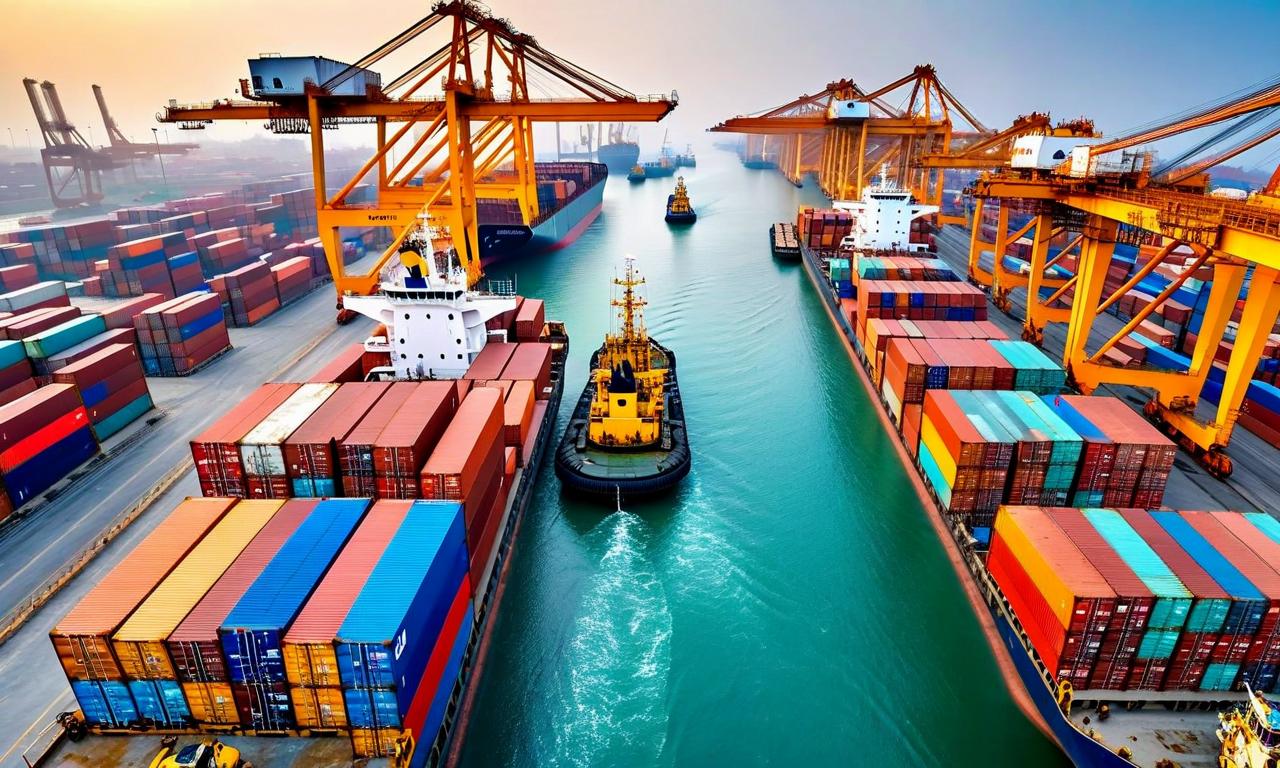Adani Ports Unveils Massive Rs 30,000 Crore Expansion Plan
Adani Ports and Special Economic Zone (APSEZ) has announced a Rs 30,000 crore investment plan over the next two years, focusing on expanding operations at Mundra, Dhamra, and Vizhinjam ports. The company aims to handle one billion tonnes of cargo annually by 2030, with 850 MMT from Indian ports and 140-150 MMT from overseas assets. APSEZ currently operates 15 ports across India with a total installed capacity of 633 MMT and a 27% national market share. The investment breakdown for FY26 includes 6,500-7,000 crore for ports, 2,300 crore for logistics, 1,500 crore for renewables, and 700-800 crore for marine services. This expansion is expected to significantly boost India's maritime infrastructure and trade capabilities.
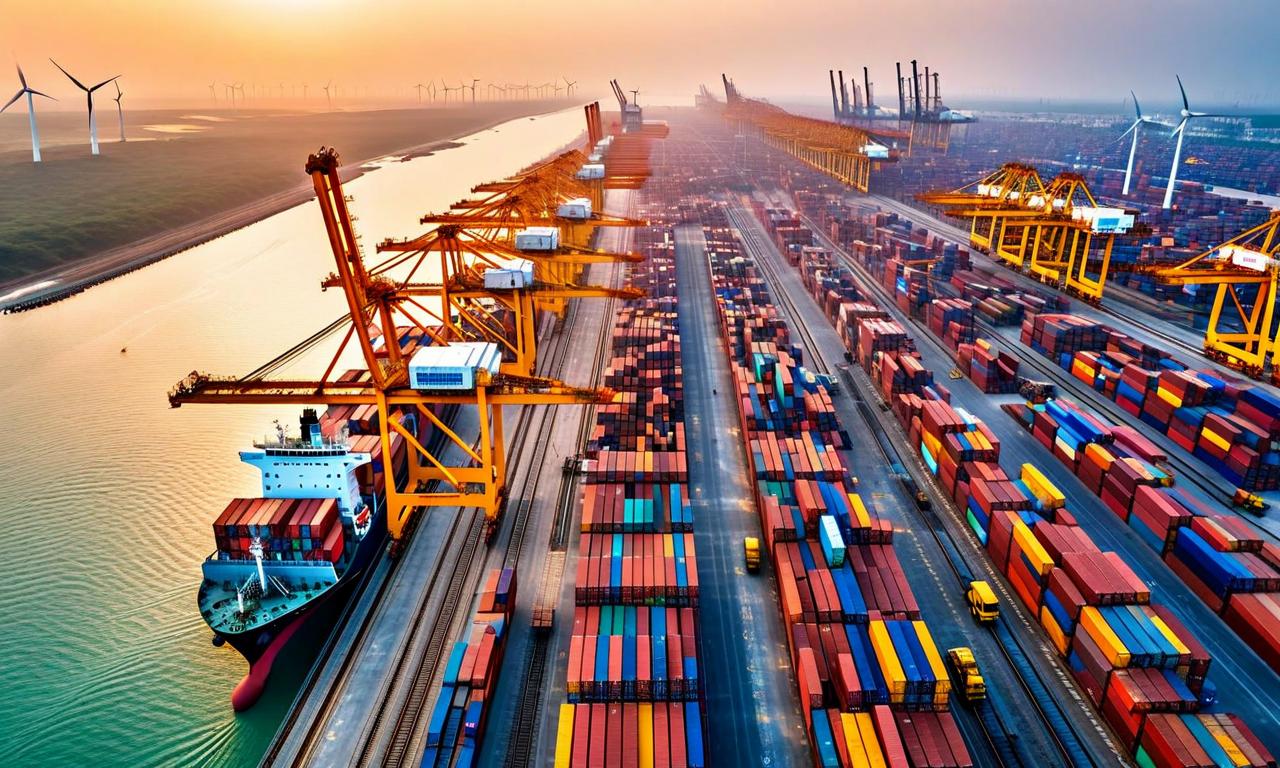
*this image is generated using AI for illustrative purposes only.
Adani Ports and Special Economic Zone (APSEZ) has announced an ambitious plan to invest Rs 30,000 crore over the next two years, signaling a significant boost to India's port infrastructure. This investment, more than double the company's guided expenditure for the current fiscal year, underscores APSEZ's commitment to expanding its domestic operations and strengthening its position in the maritime sector.
Investment Focus
The investment strategy primarily targets three key ports:
- Mundra
- Dhamra
- Vizhinjam
These locations are set to see substantial development, with a particular emphasis on berth and terminal expansion at Mundra and Dhamra. The Vizhinjam port, which has already demonstrated impressive performance by handling over one million TEUs (Twenty-foot Equivalent Units) within just nine months of its launch, is slated for further development as a transshipment hub.
Strategic Objectives
APSEZ's investment plan aligns with its ambitious target of handling one billion tonnes of cargo annually by 2030. This goal is broken down into:
- 850 MMT (Million Metric Tonnes) from Indian ports
- 140-150 MMT from overseas assets
Current Market Position
APSEZ currently operates 15 ports across India, boasting:
- A total installed capacity of 633 MMT
- Handled cargo volume of 450 MMT
- 27% national market share
Investment Breakdown for FY26
The company has outlined a detailed investment plan for the fiscal year 2026:
| Sector | Allocation (in crore rupees) |
|---|---|
| Ports | 6,500-7,000 |
| Logistics | 2,300 |
| Renewables | 1,500 |
| Marine Services | 700-800 |
This strategic allocation demonstrates APSEZ's focus on diversifying its operations while maintaining a strong emphasis on its core port business.
Expansion Beyond Ports
While the majority of the investment is directed towards port infrastructure, APSEZ is also making significant investments in logistics and renewable energy. This diversification strategy suggests the company is positioning itself as an integrated logistics player in the Indian market.
Implications for India's Maritime Sector
APSEZ's massive investment plan is likely to have far-reaching effects on India's maritime infrastructure and trade capabilities. By expanding capacity and improving efficiency at key ports, the company is poised to play a crucial role in facilitating India's growing international trade.
The development of Vizhinjam as a transshipment hub is particularly noteworthy, as it has the potential to reduce India's dependence on foreign ports for transshipment activities, potentially leading to cost savings and improved logistics efficiency for Indian exporters and importers.
As APSEZ moves forward with this ambitious expansion plan, the Indian maritime sector will be watching closely to see how these investments reshape the country's port landscape and impact its position in global trade.
